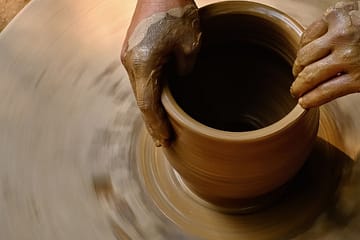
I’m always looking for perspectives that can give me a focal point in the midst of chaos. That’s why I’m interested in my teacher Master Chunyi Lin’s energy reading for the year. (I wrote a little bit about this in my last post.) I especially appreciate that he offers advice for how to balance your energy given the context of the year. This year, because the gap between the rich and poor is widening (you probably noticed this on your own), he recommended daily practice of a prosperity chant.
In the past I would have probably just glazed over at this recommendation, the eight syllables of the chant making no sense to me. But perhaps because I now regularly learn entire songs in languages that I don’t speak, and also because I’ve become a fan of chanting in general, I thought I’d give the chant a try. After all, something needs to be done to alleviate the growing economic suffering in our world.
I’m pleased that the Presidential election is stirring up some fresh conversations about how we prosper as a nation. We urgently need to talk about policy changes.
How does praying for prosperity every day fit into this picture?
Am I being greedy by practicing this chant? That’s my worst fear, and probably why I’ve skipped over prayers for prosperity in the past. With Master Lin’s recent recommendation I paused to reconsider if perhaps I need to re-examine what I think this word means. A rich dude in a suit is what immediately comes to mind.
The dictionary describes prosperity as the condition of thriving. While this is most often used in an economic context, don’t we want our forests, bees, and waters to thrive? Don’t we want every child to flourish to their full potential?
I have done a little research about the chant that Master Lin taught us and to my best guess, it looks like a variation of Om Vasudhare Svaha. The mantra evokes the name of the earth Goddess Vasudhare whose name means “stream of gems†in Sanskrit.
The image of a stream, of a flow and movement of treasures, seems especially important to me. Water always flows to the lowest point. This seems to affirm that wealth is meant to move in the same way, towards the lowest. As I understand it, this prayer is not about accumulation of wealth as much as seeking enough abundance to be able to give back freely of what we receive.
Sometimes when I practice this chant, I imagine the sound of it unblocking dams that are holding back this stream of treasures. A little beaver dam is a good thing, creating a whole ecosystem for life to thrive. But just like large dams disrupt the ecosystem, so does huge accumulations of wealth.
I hope this chant’s vibration can help breakdown my internal levees of fear that I won’t have enough. The abundance I seek is spiritual as much as it is material. May my heart be open to the gems of love, kindness, and compassion. I would love for all life on this planet to be spiritually thriving!
So, What is This Chant?
Master Lin taught us to chant Ong Wua Su Da Li Si Wua Ha 108 times every day. It should take about 3 minutes once you have grown comfortable with chanting quickly. I have made it part of the weekly routine in the Healing Waters Qigong Practice Group. I’m curious if you try it what you notice or experience.
Live long and prosper. (Yes, I’m an old Star Trek fan)
emily
Practices to Help You Thrive
You are welcome to drop in any week to either the Healing Waters Qigong practice group, based in Spring Forest Qigong, or the Wisdom Dances Circle, based in Laura Shannon’s research on traditional dances as tools for healing and transformation.


